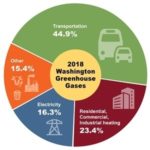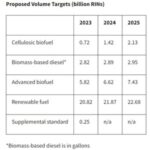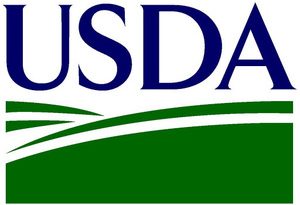Biofuel groups call GAO report on SREs shoddy, obsolete
Energy Disrupter
ADVERTISEMENT
Representatives of the biofuels industry are slamming a report on the Renewable Fuel Standard’s small refinery exemption (SRE) program released by the U.S. Government Accountability Office on Nov. 3, calling the report shoddy and obsolete.
The RFS requires U.S. refiners and other obligated parties to meet annual renewable fuel blending requirements issued by the U.S. EPA. The program allows eligible small refineries to petition the agency seeking an exemption to these blending requirements on the basis of “disproportionate economic hardship.” The petitions are scored by the U.S. Department of Energy. Based on that score, the EPA is expected to approve or deny a particular SRE petition. The SRE program has also been addressed by a number of court rulings in recent years.
The EPA began publishing data associated with SRE petitions in late 2018. Prior to that date, the agency made no data associated with the SRE program public. The publicly released data showed that the number of SRE approvals issued by the agency increased dramatically for compliance years 2016, 2017, and 2018. A number of those approvals were later overturned.
A dozen members of Congress in August 2019 sent a letter to GAO leadership urging the agency to examine the review and approval of SREs, including the U.S. Department of Energy’s viability scores for 40 SREs reviewed by the DOE for the 2018 RFS compliance year. The letter was prompted, in part, by then Energy Secretary Rick Perry’s acknowledgement that the U.S. EPA had approved at least one SRE waiver that conflicted with the DOE’s assessment. That assessment determined the DOE had no concerns about the refinery’s financial viability.
The GAO in January 2020 announced it would complete the requested review. The results of the review were released nearly three years later, on Nov. 3, 2022.
In its report, the GAO said its analysis determined that the EPA does not have assurance that its decisions about SREs are based on valid information. The report also claims that the EPA and DOE do not have policies and procedures specifying how they are to consult about and make exemption decisions.
The GAO is making seven specific recommendations as part it its review. First, the agency recommends that the EPA reassess its conclusion that small refineries recover their RFS compliance costs in the price of gasoline and diesel they sell. Second, the GAO recommends the DOE develop an approach for consulting on SREs that provides EPA with useful information on disproportionate economic hardship. In addition, the GAO says the EPA should identify and communicate what refineries would need to submit to demonstrate disproportionate economic hardship; develop policies and procedures for making SRE decisions; develop policies and procedures to ensure the agency meets statutory deadlines; and assess the effect of SRE decision timing on the benefit provided to small refineries, as well as the effect on fuel markets, and reconsider petition requirements. The DOE is also encouraged to develop policies and procedures for its consultation with EPA on SRE petitions.
The Renewable Fuels Association is criticizing the report, calling it “flawed” and “obsolete on arrival.”
“You simply can’t make this stuff up. In the summer of 2019, a bipartisan group of renewable fuel supporters in both the House and Senate asked the GAO to investigate the gross mismanagement of the small refinery exemption program by former EPA Administrators Scott Pruitt and Andy Wheeler,” said Geoff Cooper, president and CEO of the RFA. “Now, more than three years later—and less than one week before the mid-term elections—GAO puts out a shoddy report that is friendly to oil refiners and purports to answer questions no one ever asked.
“GAO’s ‘economic analysis’ can only be described as a creative and obscure acrobatic routine,” he added. “And even after performing these high-flying gymnastics, GAO can only suggest that the cost of RFS compliance for small refiners might be 0.5 percent—that’s half of 1 percent—higher than what larger refiners experience. In other words, GAO says small refiners—who are raking in record profits—can only pass on 99.5 percent of their RFS compliance costs. Meanwhile, refiners are plastering TV ads all over the DC market claiming that 100 percent of their RFS compliance costs are somehow passed all the way to consumers, meaning they bear no RFS compliance cost at all—a message that undermines GAO’s latest questionable findings.
“The bottom line is there is no such thing as ‘disproportionate economic hardship’ under the RFS,” Cooper continued. “All refiners—large or small, merchant or integrated—face the same compliance obligations and they all pass their RIN costs on to fuel blenders at the terminal. Period. There is a mountain of evidence confirming this fact, and GAO’s new report will just be thrown on the growing scrap heap of refiner disinformation meant to undermine the success of the RFS.”
Cooper said the only thing GAO got right in its report was the fact that SREs reduce demand for renewable fuel, causing harm to ethanol producers. According to GAO: “Because small refinery exemptions have been granted after the annual requirements were set, they have likely reduced blending. According to experts and a representative of a fuel blender, exemptions have reduced the price of RINs, giving less incentive to blend renewable fuel.”
“We have been saying this for years, and refiners have been claiming that SREs somehow had no impact on renewable fuel blending,” Cooper concluded. “While the GAO report’s analysis on RIN passthrough is fundamentally flawed, at least they recognize that SREs do in fact reduce physical demand for ethanol and other renewable fuels.”
Growth Energy is also slamming the GAO report.
“While GAO’s report does not accurately reflect the goal of the RFS and mischaracterizes nearly two decades of RFS implementation, it confirms what we already know: small refiners do not bear any disproportionate burden in complying with the RFS and the RFS does not raise gas prices,” said Emily Skor, CEO of Growth Energy.
“As written directly in the law, SREs may only be granted to refiners when RFS compliance causes ‘disproportionate economic hardship.’ It has been repeatedly shown that the RFS does no such thing, because refiners recover the costs of acquiring RINs,” she continued. “The American Petroleum Institute, Environmental Protection Agency, and others have all confirmed that refiners recoup the value of these credits when products are sold to fuel blenders. In its own report, GAO acknowledges that its analysis fails to consider whether small refineries face disproportionate economic hardship.
“In the past, SREs were improperly granted to refiners, not because of disproportionate economic hardship, but as a political tool to let the oil industry off the hook for its biofuel blending obligations,” Skor added. “President Biden himself condemned the past abuse of refinery exemptions that ‘decimated our trade economy and forced ethanol plants to shutter.’ That demand destruction came at the expense of farmers and biofuel producers – in addition to American drivers who lost access to lower-cost, lower-carbon fuel options at the pump.
“This report does a disservice to the recent progress EPA has made since halting the abuse of SREs nationwide, in line with a key holding issued by the U.S. Court of Appeals for the Tenth Circuit.”
A full copy of the GAO report is available on the agency’ website.
















